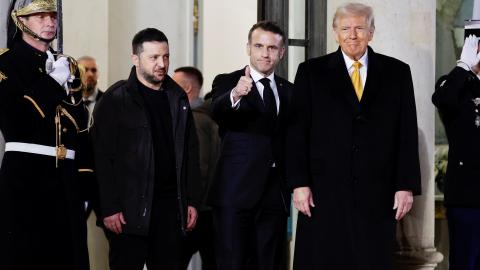A few years ago, I had the chance to share dinner with a former prime minister from an Eastern European nation. Throughout the evening, he recounted his achievements and frequently mentioned the prominent politicians he encountered. As a staunch socialist — something he made abundantly clear— I was surprised when he revealed that the most valuable political lesson he ever received came from none other than the late British prime minister, Margaret Thatcher.
He recalled how, as a young politician, he joined a delegation to the United Kingdom, where they had a brief audience with the “Iron Lady.” True to his socialist convictions, he felt compelled to challenge Thatcher, criticizing her for what he perceived as a “lack of compassion.” Decades later, her response remained vivid in his memory: “Governing,” she told him, “is about commitment, not compassion.” These words, he said, profoundly shaped his approach to leadership and made him more effective in his role.
Whether this story is apocryphal or accurate, it aligns with the Thatcher who famously advised former President George H.W. Bush during the lead-up to the Gulf War, warning him that it was “no time to go wobbly.”
As the United States steps into 2025 with a new commander-in-chief, the importance of commitment as a cornerstone of effective leadership in foreign affairs is undeniable. The challenges facing the nation —spanning the Middle East, Europe, and Asia — are vast and daunting, with possible crises looming at every turn.
Commitment serves as a guiding principle, a lodestar, for navigating the turbulent waters of international relations. Yet staying committed to a chosen course of action is far from easy. The constant weighing of risks and rewards inherent in “cost-benefit” policy analyses often makes the path forward uncertain. In foreign affairs, where risks can be enormous, the temptation to “go wobbly” is ever-present.
Still, the adage “fortune favors the bold” has proven true time and again. Thatcher’s partnership with former President Ronald Reagan offers a compelling example: their steadfast resolve led to victory in the Cold War. By contrast, the Biden administration’s cautious approach to Ukraine — marked by limits on arms and strategic hesitations — has resulted in a protracted conflict with devastating human costs and no clear resolution in sight.
However, commitment alone does not suffice. Blindly pursuing a flawed strategy is no virtue. Effective leadership demands comprehension — a deep understanding of what is achievable. In foreign affairs, comprehension is particularly challenging, as it requires balancing domestic political considerations with the complexities of international history, culture, and interests, all while keeping the national interest firmly in view.
Communication is the third critical pillar of successful leadership in foreign policy. The late Harvard political scientist Richard Neustadt argued that the president is not only a leader but also a teacher. Effective presidents set clear expectations for both domestic and international audiences. Domestically, they must articulate the purpose and possible costs of policy decisions, particularly when asking citizens to bear sacrifices in blood and treasure. Americans are willing to make great sacrifices, but they need to understand the rationale behind them.
Internationally, clear communication is equally vital. While strategic ambiguity has its place, there must be clarity about what actions the U.S. will not tolerate. This communication often goes beyond words, drawing on a nation’s history of actions to signal intent and resolve.
Ultimately, the interplay of commitment, comprehension, and communication defines effective presidential leadership in foreign affairs. These elements are not isolated but interdependent, each reinforcing the others. A leader who masters all three stands a greater chance of navigating the complexities of the global stage with success and purpose.
Enjoyed this op-ed? Subscribe to Hudson’s newsletters to stay up to date with our latest content.




















